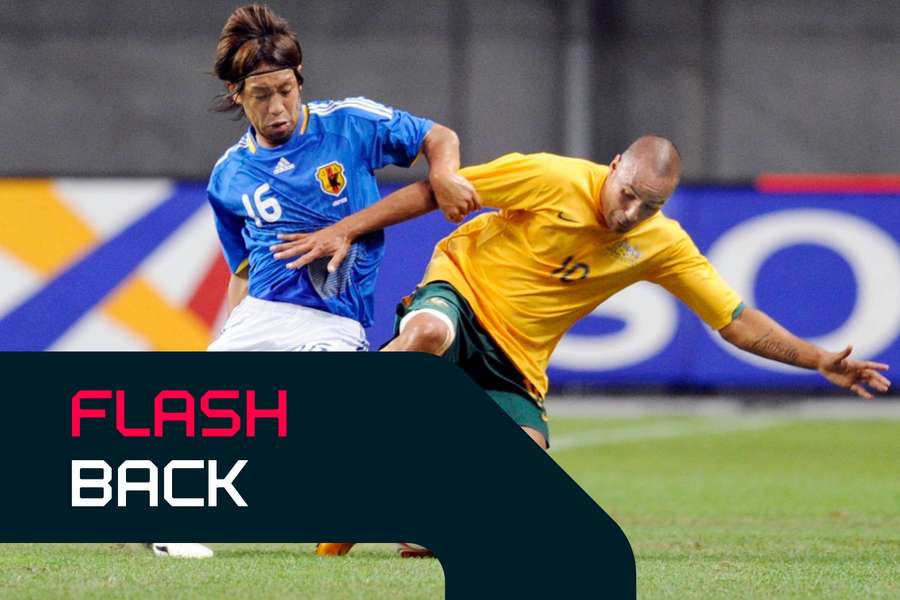Oceania qualifying tournament
As a qualification for the 2002 World Cup, the Oceania Football Confederation (OFC) decided to hold a qualifying tournament. The winner of the tournament would then play against the fifth-placed team from the South American qualification in a play-off for a place in the final tournament.
Ten national teams from the OFC entered this qualification tournament. The teams were split into two groups of five. Group One was hosted by Australia, Group Two was based in New Zealand.
Australia and New Zealand, traditionally the two strongest teams in the OFC, were, of course, separated into two different groups for the group stage. Group 1 included Australia, Fiji, Tonga, Samoa and American Samoa (of which only Australia had previously appeared at the finals of a FIFA World Cup). In Group 2, apart from New Zealand, the teams of Tahiti, Solomon Islands, Vanuatu, and Cook Islands were represented.
Tonga 0-22 Australia
In the first round of the qualifying Group One, the favored Australia faced Tonga, the small island nation in Oceania with a population of about 100,000 inhabitants.
Tonga, nominally the home team for this qualifying match, were defeated 0-22 by Australia. This result beat the previous international record of 20-0 score-line from February 2000 when Kuwait defeated Bhutan in qualification for the 2000 AFC Asian Cup.
John Aloisi, then a striker of Coventry City in the Premier League, scored six goals in the match. The Australian line-up also included other players from good European teams, such as the duo Craig Moore and Tony Vidmar from Rangers.
Tonga coach Gary Phillips questioned the need for Australia to call up so many European-based players, saying: "All up if you combine the total monetary worth of the Socceroos (the nickname of the Australian football team) and divide it by five, then you have the total economy of Tonga." Coach of the Australian team Frank Farina described the whole match as "embarrassing".
Australia 31-0 American Samoa
The record goal margin was surpassed just two days later, on April 11, 2001, when Australia again prevailed, defeating American Samoa 31-0. American Samoa was one of the weakest teams in the world, having lost all of their official international matches since they had joined FIFA in 1998. Before the match, Australia was ranked 75th in the FIFA World Rankings, while American Samoa was ranked 203rd, the lowest of all FIFA members at that time.
However, the American Samoa national team arrived at the qualifying tournament in Australia even more weaker. They were troubled by passport issues, with only one member of their original 20-man squad eligible to play. American Samoa were also unable to call their under-20 players because most of them were involved in high school exams at the time.
They were forced to draft in youth players, including three 15-year-old players, to put together a makeshift team with an average age of 18. According to team manager Tony Langkilde, some of the players had never played a full 90-minute match before playing against the professional footballers of the Australian national team.
This American Samoa team couldn't even be competitive. Before facing the historic match against the Socceroos, American Samoa had lost 0-13 to Fiji and 0-8 to Samoa in the qualifying tournament.
Australia's striker Archie Thompson (at that time a player of the Australian club Marconi Stallions, and later a player of, for example, the Belgian side Lierse) broke the world record for most goals scored by a player in an international match by scoring 13 goals.
For completeness, after a record loss to Australia, American Samoa also lost their last match against Tonga 5-0. American Samoa, therefore finished Group One in last place with an overall score of 0-57.
Impulse for change
The outcome of the Australia vs. American Samoa match, especially, but also of the whole Oceanian qualification, led to debates about the format of qualification tournaments. It was proposed that preliminary rounds should be introduced to avoid such unbalanced matches. This idea was applied right from the next qualification cycle. And in addition, the unbalanced level of opponents was also addressed by Australia's move to the Asian Football Confederation in 2006.
Australia and World Cup 2002?
How did the Socceroos fare in this qualifier? Australia of course won their qualifying Group 1. Then they won the Oceanian zone final over New Zealand. In the OFC–CONMEBOL play-off against Uruguay Australia took a 1-0 win from the first leg. However, Uruguay won the second match 3-0 in South America, so the Australians did not make it to the 2002 World Cup in the end.

